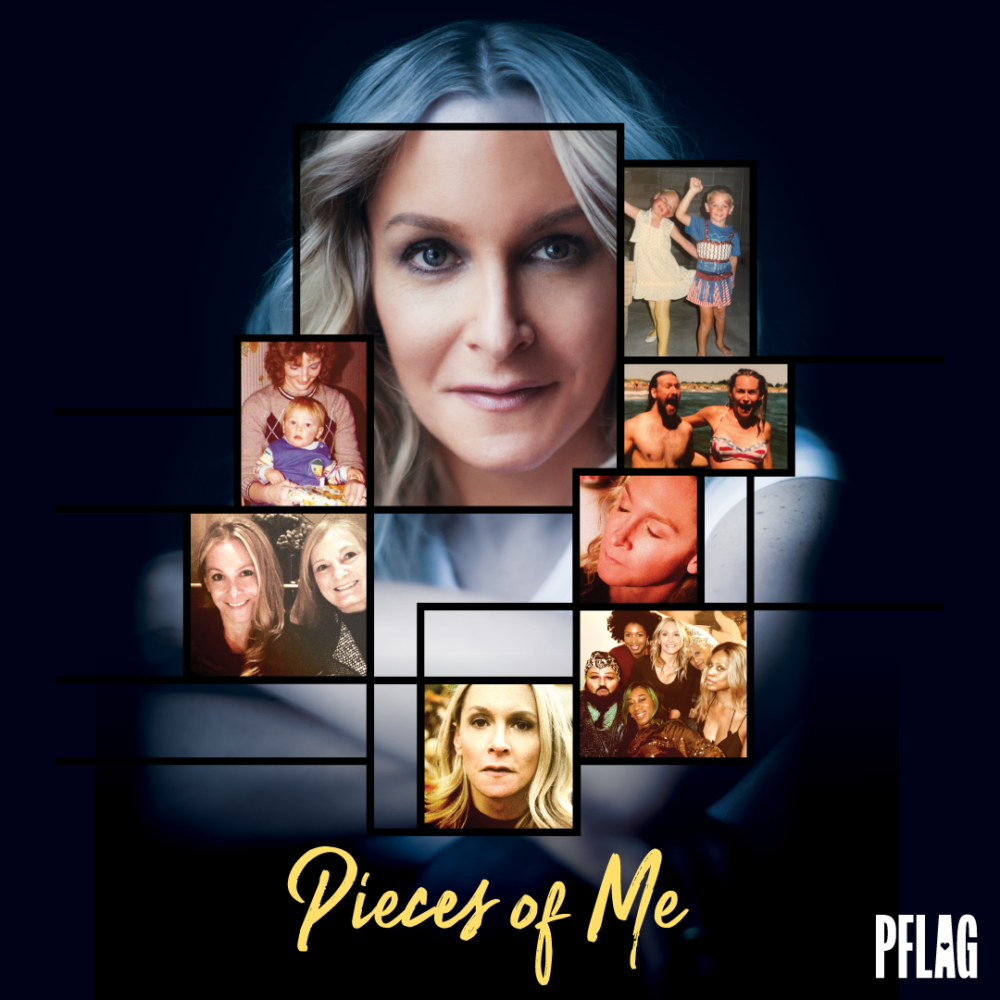What do you do when someone doesn’t use any pronouns?
Elevating the voices and experiences of transgender and nonbinary people is a passion of PFLAG National intern Sam Krauss (they/them), a government and sociology double major going into their senior year at Smith College, who comes from Abington, Pennsylvania. In this series beginning on Nonbinary Day, Sam shares tips for honoring loved ones who don’t use pronouns.
What do you do when someone doesn’t use any pronouns?
Pronouns are everywhere, and we often don’t realize we’re using them. So, when a person asks not to be referred to using any pronouns, it may seem like an impossible task. It may take some getting used to, but when you can make a small adjustment, you can make a big difference.
A person may refrain from using pronouns for many reasons. There may not be a set of pronouns that feels right for that individual. The person might be figuring out what pronouns to use in the future and may not want to use any in the meantime. There might be pronouns that fit but are not in common use, and explaining them feels exhausting. In any scenario, whether temporary or permanent, it’s important to respect this person’s lack of pronouns. Using no pronouns is a simple adjustment that can have a great impact on a person’s sense of validity within their gender.
To start, it may feel like you’re saying the person’s name a lot. You probably are. That’s ok. We use pronouns so frequently that we often don’t realize our usage until we stop using them altogether. Come up with a few other descriptors for the person. These can describe the relationship between you and the person who uses no pronouns, (ex. friend, colleague), about the person professionally, (ex. manager, athlete), or personally, (ex. nurturer, host).
As an example for how to talk about a person who doesn’t use pronouns, let’s look at Sam Feder. I first found Sam’s credit as the creator and director of Disclosure, a documentary on which PFLAG partnered, about trans representation in film. I searched diligently for a pronoun so I could properly reference this incredible director — and because I know from experience that “Sam” is already a name of many genders. What I found was a delightfully descriptive, 150-word biography from the Queer Producers Network of Sam Feder that contains zero pronouns! If reading it to learn about the director, you may well not notice the lack of pronouns. I know I didn’t. It’s a great start to seeing how to talk about a person without needing a pronoun.
To begin practicing not using pronouns, the first thing is to get used to starting sentences with the person’s name. That way, there is no confusion about the subject of the sentence. If the person is in the room, the second person pronoun you is universally applicable. Some good replacements for reflexive pronouns, (himself, themselves, myself, etc.), that I use are: alone, solo, unattended, independently, in solitude, without prompting, and free from the boss’s gaze. Remember that even though they/them pronouns are great for a lot of people, if a person uses no pronouns at all, using they/them pronouns to refer to that person is still incorrect.
The key to respecting people who don’t use pronouns is practice. Ask someone to practice gushing about your pronoun-less friend with you. If you have yet to meet a person who uses no pronouns, you can still practice. Pick a name at random, talk about a real person, or talk about a pet, (I promise, pets don’t subscribe to the gender binary). If you can, do this work without your friend there, as hearing you make mistakes and using pronouns can feel hurtful. No one is born understanding all about gender, so there is room for error starting out. Do your best to respond with respect and affirmation. In time, it will feel more natural. Just keep that commitment to respecting people’s pronouns and lack of pronouns up, and you’ll do just fine!
Here are some pieces to read to keep the conversation going:
- “How Do I Use Your Pronouns Correctly?” from MyPronouns.org.
- “5 People Share What It Feels Like To Have Their Pronouns Affirmed” from Jamie LeClaire.
- “What You’re Actually Saying When You Ignore Someone’s Gender Pronouns” from Sam Dylan Finch with this graphic to summarize.
- “Agender People Debunk Myths About Their Identities” from Serena Sonoma.
- “Genderqueer and Non-Binary Genders,” a book edited by Christina Richards, Walter Pierre Bouman, and Meg-John Barker. Read it for free here.
- “Doctors Using a Transgender Patient’s Correct Pronouns is a Life or Death Matter,” from Teen Vogue
